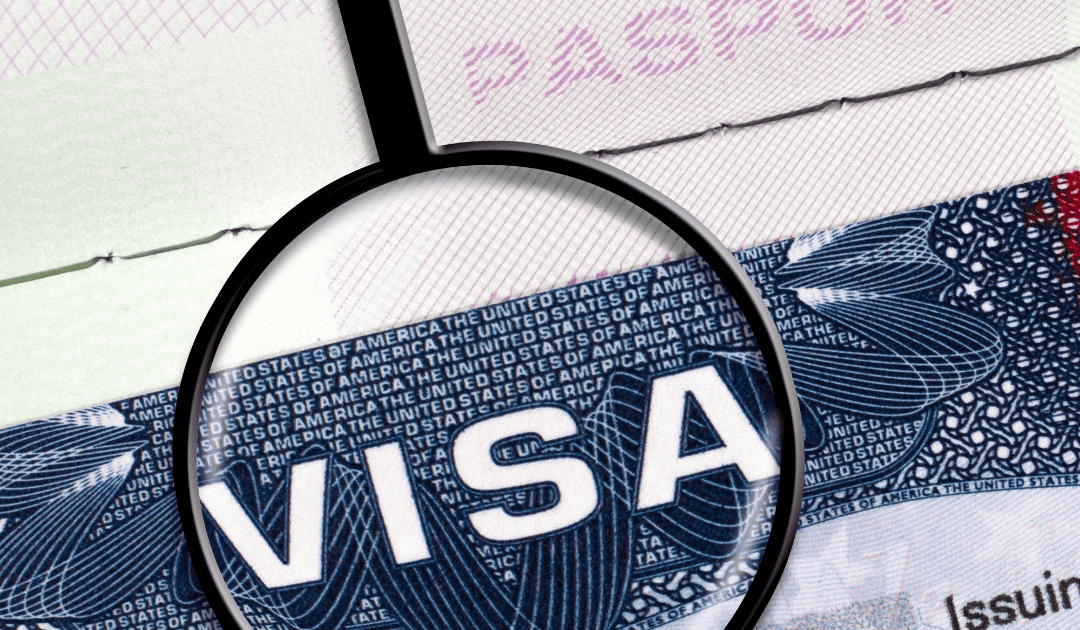Employers Immigration is a critical aspect of human resources and legal operations for U.S. employers. In today’s global workforce, ensuring that your company adheres to immigration laws not only helps maintain a robust and diverse team but also protects your organization from potential legal issues. This guide covers everything from regulatory requirements and eligibility to the role of specialized immigration professionals, such as a Work Immigration Attorney and the Best Immigration Lawyer for Employment-Based Green Cards, to help you navigate this complex landscape.
Table of Contents
- Introduction
- Understanding Employer Immigration Compliance
- Regulatory Framework and Legal Requirements
- Sponsorship and Eligibility Requirements
- Key Visa Categories Relevant to Employers
- Best Practices for Maintaining Compliance
- The Role of Immigration Professionals
- Challenges, Appeals, and Legal Considerations
- Conclusion
Introduction
As U.S. businesses expand their talent pool, employer immigration compliance has become a cornerstone of effective human resources management. From sponsoring international employees to managing visa programs, employers must be vigilant about following federal and state regulations. This guide is designed for HR professionals, legal advisors, and business owners seeking an in-depth understanding of compliance requirements and best practices.
Understanding Employers Immigration Compliance
Employers’ immigration compliance involves adhering to U.S. immigration laws and regulations that govern the hiring, employment, and sponsorship of foreign workers. Compliance ensures that:
- All employees have valid work authorization.
- Employers complete the necessary documentation (e.g., Form I-9 verification).
- Proper processes are in place for visa sponsorships and renewals.
A compliant immigration strategy protects your organization from legal risks, financial penalties, and reputational damage.
Regulatory Framework and Legal Requirements
The U.S. government enforces several regulations that affect employer immigration practices:
- I-9 Verification: Employers must verify the identity and employment authorization of every employee hired. This is a cornerstone of immigration compliance.
- E-Verify System: Participation in E-Verify, a system that confirms employee eligibility, is mandatory for some employers, particularly those with government contracts.
- Record Keeping: Detailed records of immigration documents, visa statuses, and employment history must be maintained to ensure readiness for audits and inspections.
- Anti-Discrimination Laws: Employers must adhere to equal employment opportunity laws, ensuring that hiring practices do not discriminate based on national origin or citizenship status.
Understanding these requirements is essential to build a compliant framework that minimizes risks and fosters a fair workplace.
Sponsorship and Eligibility Requirements Employers Immigration
For employers interested in sponsoring foreign talent, it is crucial to know the eligibility criteria:
- Job Offer and Labor Certification: Many employment-based visas require a bona fide job offer and an approved labor certification from the U.S. Department of Labor.
- Demonstrated Need: Employers must show that there is a need for the foreign worker’s skills and that such skills are not readily available in the U.S. labor market.
- Compliance with Visa Requirements: Each visa category has specific requirements regarding education, work experience, and skills.
Establishing clear policies and conducting regular audits are effective ways to ensure that sponsorship processes meet legal standards.
Key Visa Categories Relevant to Employers Immigration
U.S. immigration law offers various visa options for employers. Understanding these categories is essential for choosing the right path for your business needs:
Employment-Based Visas
- H-1B Visa: For specialty occupations that require technical or theoretical expertise.
- L-1 Visa: For intracompany transferees in managerial or specialized knowledge roles.
- O-1 Visa: For individuals with extraordinary ability or achievement.
For College Graduates
- OPT (Optional Practical Training): Allows international students to work in the U.S. post-graduation. An OPT and Work Visa Lawyer for College Graduates can guide institutions and employers on compliance and visa extensions.
Employment-Based Green Cards
For long-term employment solutions, employers may sponsor foreign workers for permanent residency. Working with the Best Immigration Lawyer for Employment-Based Green Cards can streamline this process by ensuring all legal and regulatory requirements are met.
Investor & Business Employers Immigration
Businesses looking to attract foreign investment or facilitate business expansion can explore Investor & Business Immigration options. These programs offer pathways for entrepreneurs and investors to obtain work authorization and permanent residency, thereby boosting business growth and innovation.
Best Practices for Maintaining Compliance
Maintaining compliance with U.S. immigration laws requires ongoing attention and robust internal processes. Consider the following best practices:
- Regular Training: Provide comprehensive training for HR and legal teams on immigration laws, document verification, and compliance procedures.
- Audits and Self-Inspections: Conduct periodic audits of your hiring and sponsorship practices to identify and rectify potential non-compliance issues.
- Up-to-Date Policies: Regularly update your internal policies to reflect changes in immigration laws and regulatory guidance.
- Clear Communication: Foster an environment where employees are encouraged to report concerns related to immigration compliance without fear of retaliation.
- Engage Experts: Consult with specialized professionals, such as a Work Immigration Attorney, to navigate complex cases and ensure your policies are current.
Implementing these practices helps safeguard your organization against legal pitfalls while promoting a culture of compliance and inclusivity.
The Role of Immigration Professionals
Given the intricacies of immigration law, employers often benefit from working with qualified legal experts. These professionals can provide tailored advice and services in several key areas:
- Immigration Appeal Lawyer: When faced with denial or legal challenges, an experienced appeal lawyer can help navigate the appeals process and represent your business in legal proceedings.
- Work Immigration Attorney: Specializes in advising employers on hiring practices, sponsorship processes, and compliance with immigration regulations.
- OPT and Work Visa Lawyer for College Graduates: Offers guidance to both employers and international graduates to ensure a smooth transition from student visas to work visas.
- Best Immigration Lawyer for Employment-Based Green Cards: Assists in the complex process of sponsoring employees for permanent residency, ensuring that all documentation and legal requirements are meticulously met.
- Investor & Business Immigration Specialist: Advises companies on immigration pathways that attract foreign investment and facilitate business growth.
Collaborating with these professionals not only provides expert legal guidance but also helps mitigate risks and streamline your immigration processes.
Challenges, Appeals, and Legal Considerations
Even with rigorous internal controls, employers may encounter challenges in maintaining immigration compliance:
- Documentation Errors: Mistakes in completing or storing immigration documents can lead to compliance violations.
- Regulatory Changes: Frequent updates in immigration laws require continuous monitoring and adaptation of internal policies.
- Legal Disputes: In cases where disputes arise, having access to an Immigration Appeal Lawyer is essential for a favorable resolution.
It is vital to have a proactive strategy for addressing these challenges. Regular legal reviews and partnerships with experienced immigration attorneys can help ensure your organization remains compliant even in a rapidly evolving legal landscape.
Conclusion Employer Immigration
Employer immigration compliance is not just a legal requirement—it’s a strategic imperative that can safeguard your business and enhance your global competitiveness. By understanding the regulatory framework, ensuring proper documentation, and partnering with specialized immigration professionals, you can build a robust compliance program that supports both your employees and your organizational goals.
For personalized advice and to ensure your practices align with current immigration laws, consider consulting with a seasoned Work Immigration Attorney or reaching out to an Immigration Appeal Lawyer if legal challenges arise. Whether you’re managing OPT transitions for college graduates or navigating complex employment-based green card applications with the Best Immigration Lawyer for Employment-Based Green Cards, expert guidance is key to your success.
Maintaining a proactive and compliant approach not only minimizes legal risks but also positions your organization as a leader in diversity and inclusion. Stay informed, remain vigilant, and ensure that your immigration practices meet the highest standards of excellence.
This blog post is intended for informational purposes only and should not be considered legal advice. Always consult with a qualified immigration attorney for advice tailored to your specific situation.
For more insights and updates on immigration compliance, explore our other related blog posts and resources on our website.


Recent Comments